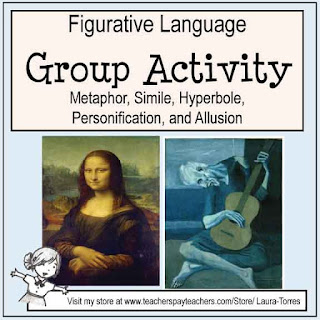In my last blog (click here) about my support for standardizing the singular use of the pronoun "they," I glossed over one of the central issues, which is the use of the gender-specific pronouns "he" or "she."
Using "they" is not a perfect solution to this problem because there are times it doesn't make sense.
"Each student must turn in their assignment by tomorrow" is a sentence where "they" flows seamlessly and does not cloud meaning. There are multiple students and each is turning in an assignment. The plural here makes some sense, even if it doesn't traditionally agree. This is how we generally speak, and most would not even notice there is a technical error here.
"Erin must turn in their assignment by tomorrow" however, sounds strange. Even worse, what if we are still talking about Erin, but want to avoid "he" or "she" (perhaps we don't know Erin's gender, or perhaps we are uncertain of Erin's preferred pronoun): "They need to pick up their reading log at the library." This is where "they" doesn't work. It's not a matter of agreement, it's a matter of defining who we are talking about in the first place. We are talking about one person here, not a group of people.
Enter the latest gender-neutral pronoun "ze." It would be nice to solve this problem that easily. Ze is not the first gender-neutral pronoun that has been proposed, but it has gained some traction. The problem is, I don't see it being accepted anytime soon in common usage. The reasons are not because it is not practical (it is on every level), but because this type of fundamental change in language is difficult.
There are words like "blog," "crowd fund," and "tweet" that didn't exist a few years ago but were easily accepted and widely used now, but those are different because they stand for new concepts that needed words. Changing our use of common pronouns is an entirely different matter. It would have to be conscious, careful, and widely understood and accepted. In other words, a deliberate cultural effort.
In addition, the learning curve is high. When ze (subject) is used as an object, it is "hir" (pronounced here), as a possessive pronoun, it is "hirs" (pronounced heres), and as a reflexive, it is "hirself" (pronounced hereself). The use of these unfamiliar pronouns is not intuitive or currently understood by most. (As I type these words, auto-correct is doing its best to "fix" them.)
A change like this is not going to come easy, even in academia. When I offered it as an alternative to my first-year college freshman class at a very liberal college, not a single student adopted the practice, even though some were careful to give me their preferred pronoun on first roll call.
I believe a gender-neutral pronoun will someday be adopted by English speakers, and should be for practical reasons, but I would guess it will be decades from now. In the meantime, "they" is the best we can do.
There are words like "blog," "crowd fund," and "tweet" that didn't exist a few years ago but were easily accepted and widely used now, but those are different because they stand for new concepts that needed words. Changing our use of common pronouns is an entirely different matter. It would have to be conscious, careful, and widely understood and accepted. In other words, a deliberate cultural effort.
In addition, the learning curve is high. When ze (subject) is used as an object, it is "hir" (pronounced here), as a possessive pronoun, it is "hirs" (pronounced heres), and as a reflexive, it is "hirself" (pronounced hereself). The use of these unfamiliar pronouns is not intuitive or currently understood by most. (As I type these words, auto-correct is doing its best to "fix" them.)
A change like this is not going to come easy, even in academia. When I offered it as an alternative to my first-year college freshman class at a very liberal college, not a single student adopted the practice, even though some were careful to give me their preferred pronoun on first roll call.
I believe a gender-neutral pronoun will someday be adopted by English speakers, and should be for practical reasons, but I would guess it will be decades from now. In the meantime, "they" is the best we can do.











